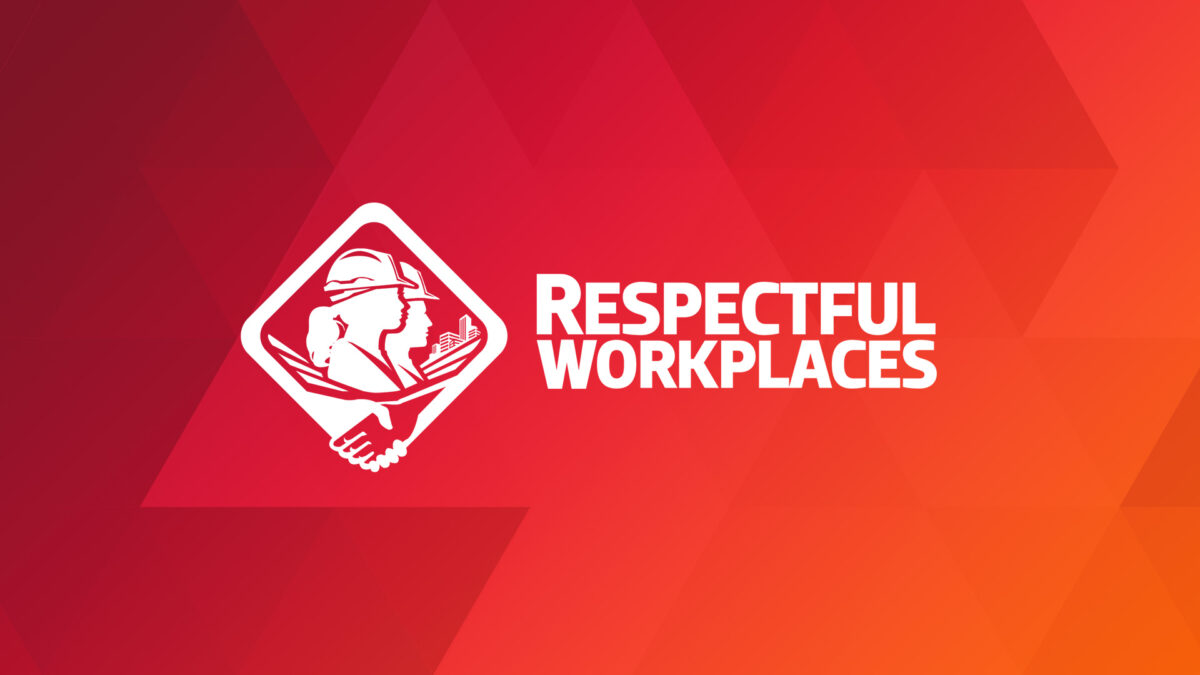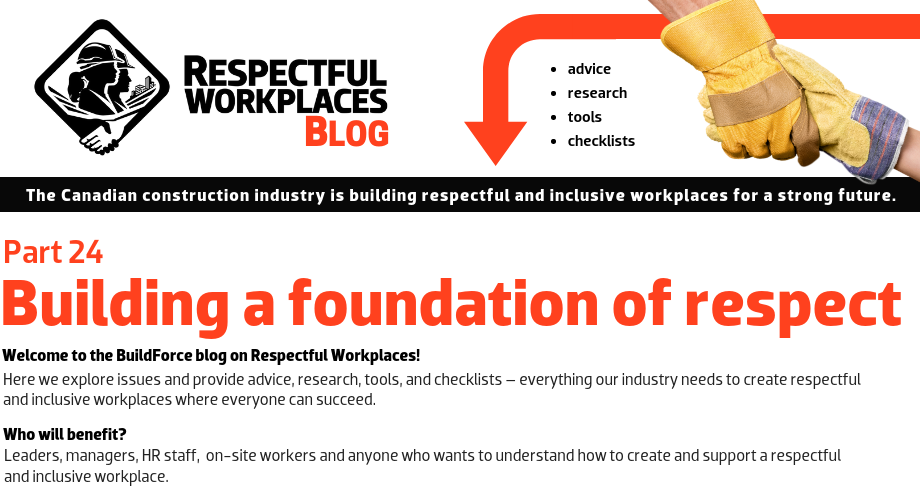
(Each month our feature question is taken from the BuildForce Canada Respectful Workplace Online Self-Assessment Tool. This Tool allows organization leadership to assess their progress toward a Respectful and Inclusive Workplace and benchmark their progress confidentially against other construction organizations. This Tool is one of three in the BuildForce Canada online Respectful and Inclusive Workplace Toolkit.)
Does your organization measure the impact of respectful and inclusive workplace policies and processes segmented according to the different genders, backgrounds and circumstances of all workers?
The BuildForce Canada Respectful Workplace Online Self-Assessment Tool identifies “continuous Improvement” as essential to creating and sustaining a respectful and inclusive workplace. Measuring the impact of respectful and inclusive workplace programs and policies segmented by different genders, backgrounds and circumstances ensures that organizations have an accurate picture of the success/failure of their efforts to create a respectful and inclusive workplace for everyone.
There are four related activities that should be conducted annually to achieve continuous improvement.
1. Information gathering
- This includes workforce information gathered from personnel files or from anonymous surveys about the demographics of your workforce or the number of harassment complaints, etc.
2. Risk assessment
- The information gathered will indicate areas of “risk” where disrespectful incidences or behaviours could occur or have been occurring.
3. Needs analysis
- Based on the risk assessment, your organization identifies what it needs to do to reduce/eliminate the risk of disrespectful incidences or behaviours.
4. Outcome evaluation
- This includes evaluating the success/failure of the actions taken in order identify gaps, and setting goals and timetables for improvement.
For more info:
- BuildForce Canada. Respectful and Inclusive Workplace Toolkit. 2018.
- BuildForce Canada. Meeting Construction and Maintenance Workforce Challenges: National Industry Strategy. 2017.

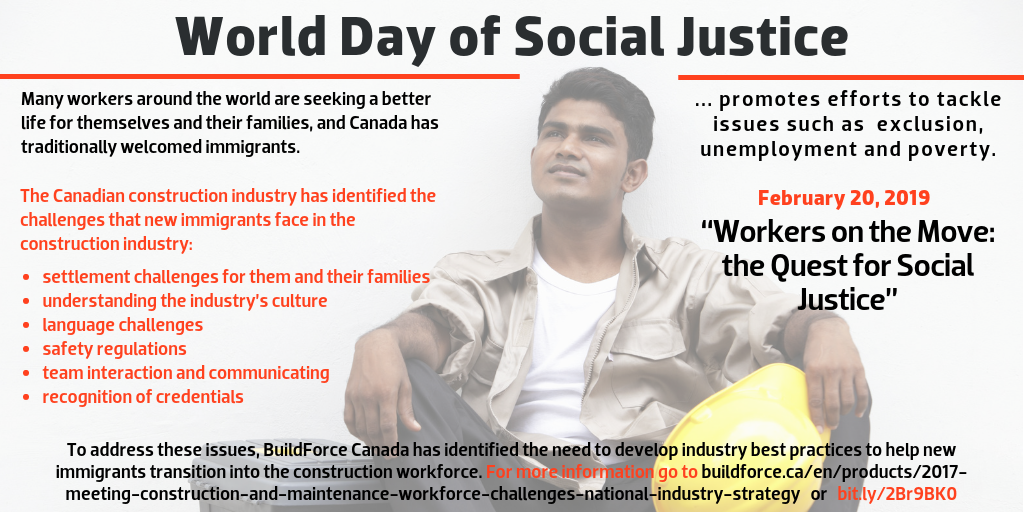



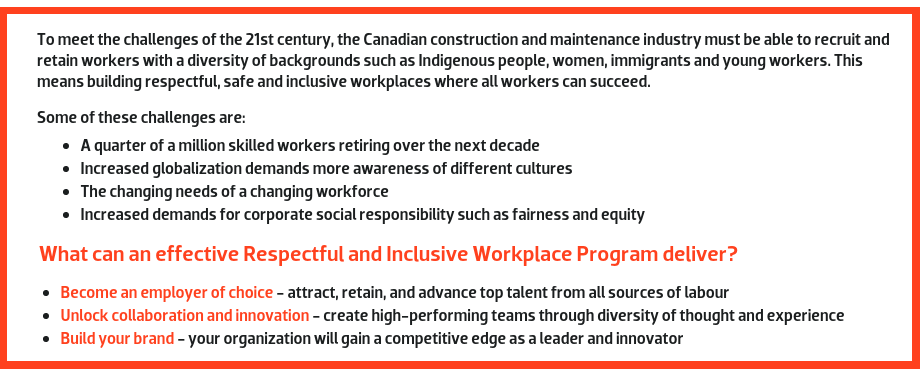
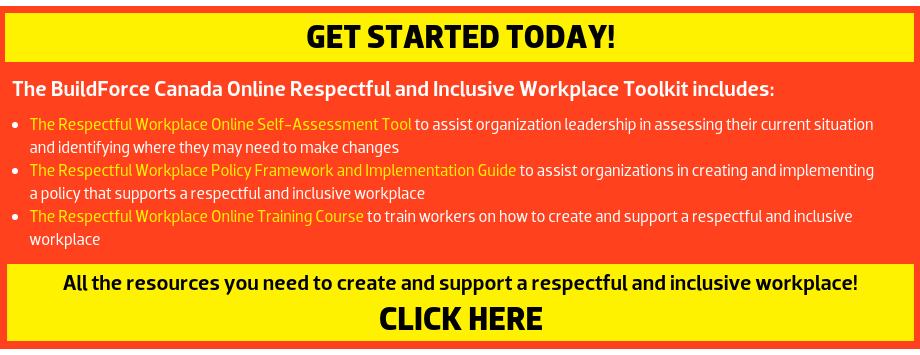

This project has been funded by Status of Women Canada.

Respectful and Inclusive Workplaces
